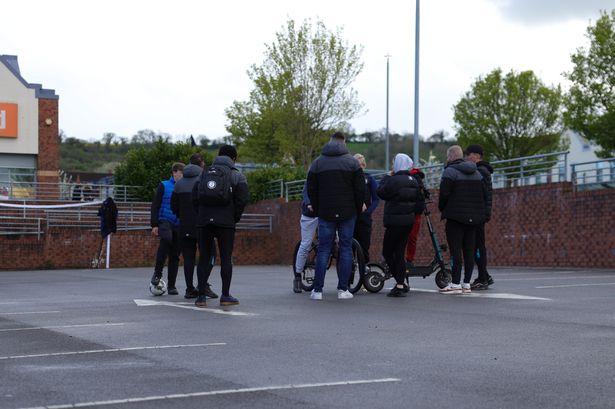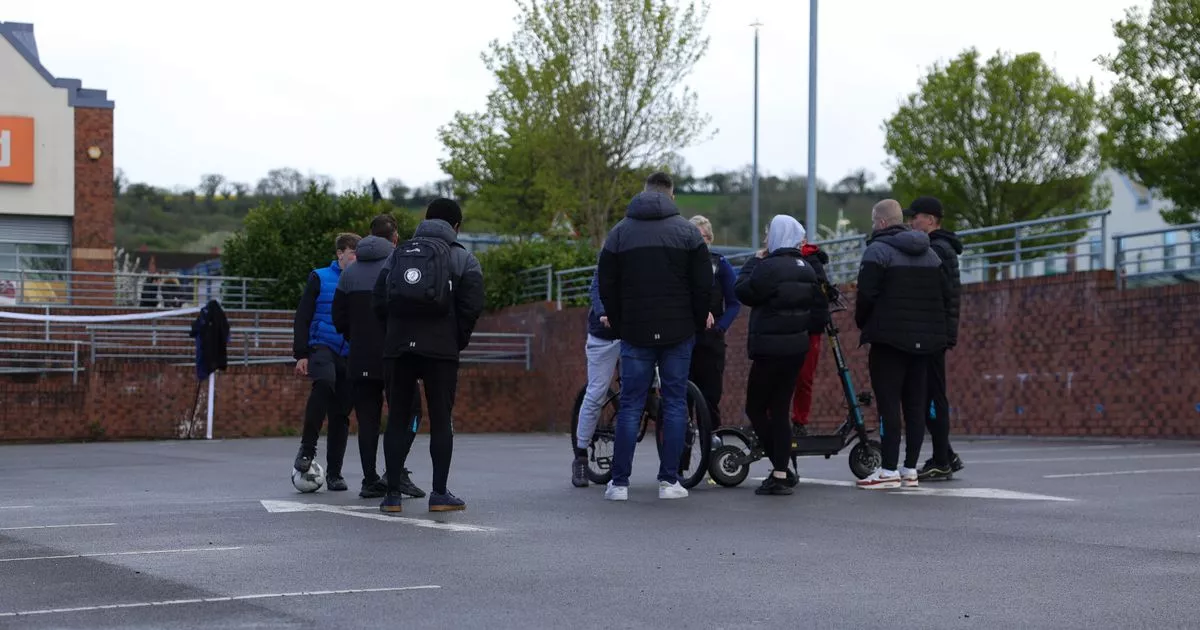But there are many complex reasons why young people might not be in education, employment or training A Robins Foundation football session on the car park at Morrisons in Hartcliffe(Image: Robins Foundation)
A Robins Foundation football session on the car park at Morrisons in Hartcliffe(Image: Robins Foundation)
Bad buses and blasé businesses have been blamed for thousands of Bristol teenagers who are not studying, working or training. Nearly 700 teenagers aged 16 and 17 aren’t in education, training or employment, while 2,235 18 to 24-year-olds are receiving unemployment benefits.
More disadvantaged areas on the outskirts of Bristol tend to have higher numbers, such as Hartcliffe, Lawrence Weston and Knowle West. These places have few job opportunities and public transport links to the rest of the city, making access to colleges and work harder than elsewhere.
Bristol City Council has a legal duty to encourage and help young people aged 16 and 17 to take part in education or training. An update on the numbers of teenagers not in education, employment or training was given to councillors on the children and young people policy committee. Local firms were encouraged to “step up” with work experience offers.
Jane Taylor, head of employment, skills and lifelong learning at the council, said: “It’s a sizeable number of young people and we should be worried about that. It’s a huge worry for them and their families, and it’s a loss to the city and the economy.
“We’ve got the perennial issue of transport in this city, which is expensive and inconsistent. Many young people lack the confidence to travel outside of their immediate locality. Work experience is really key, and we’ve got a really important role here in the council to contribute to that and talk to other employers about showing them the way.”
The Bristol Works Programme, run by the council, arranges work experience for young people in school who are at risk of ending up not in work, education or training. It aims to motivate young people to stay in school and do well too, with a taste of what good jobs can look like. And a new coaching pilot will launch this week, working with 15-year-olds who are skipping school.
But in some parts of the city, there are few job opportunities and travelling to other parts is hard. While a range of bus services have been invested in with more frequent buses, First Bus drivers are going on strike later this month for nine days in a dispute over pay. The lack of regulation and oversight of the buses in Bristol also leads to less reliable services than cities like London.
Labour Councillor Kerry Bailes said: “We fight to get our children a decent education. It costs us a lot of money, time and energy, and it’s really draining. Then when they finally leave school, there’s nothing. There’s this big void, there’s no jobs, there’s a lack of opportunities.
“Especially in my ward [Hartcliffe and Withywood], you could have a really techy kid who doesn’t quite fit in at school but tries their best. Then they get to 16 and 17 and you think what job is out there for this techy child? Where I live it’s things like scaffolding.
“For a child to then go and find something techy that they enjoy, there’s also a transport barrier. We might have improved the buses this year, but generally since my ward was built in the 1950s, we haven’t had great bus services.”
Next year the M1 metrobus service could be extended into Hartcliffe, so accessing the city centre and north Bristol will become easier for residents there. The council also trains some teenagers on travelling independently using public transport. But another problem is children from some parts of the city struggling to get work experience placements.
Cllr Bailes added: “Even at the stage when they’re thinking about options, they find it difficult to get work placements. That’s one week in their life when they have to find a work experience placement. We’ve got hundreds and hundreds of businesses across the city that should and could step up — but quite often they don’t. Kids in my ward don’t ever get the opportunity.”
Researchers from the Robins Foundation interviewed several teenagers who were either not in education, employment or training, or at risk of becoming so. They found that transport struggles, a lack of decent work experience and confusion over how to apply for jobs and courses were common among this group of young people. But the causes were complex.
Interviewees also described the emotional toll of not working or studying too. One said: “It’s boring, it’s annoying not having anything to do.” Another added: “It isn’t fun, I feel like I want to do something but I’m not sure how to do it.”
The research highlighted that early intervention would help, as well as help navigating education or career plans, ongoing emotional and mental health support and practical advice. Common barriers to finding education, employment or training included a lack of work experience, depression and anxiety, and the “belief that there are no jobs available where they live”.
The researchers said: “It is all too easy to categorise this group based on broad characteristics such as location, ethnicity, or age. A recurring theme in our conversations was a strong resistance to being viewed as a collective or labelled in a way that implies deprivation.
“Many young people expressed that such generalisations made them feel even more distanced from opportunities and progress. They want to be recognised for who they are, not just for the barriers they face, and to be approached with understanding and respect rather than assumptions.”
